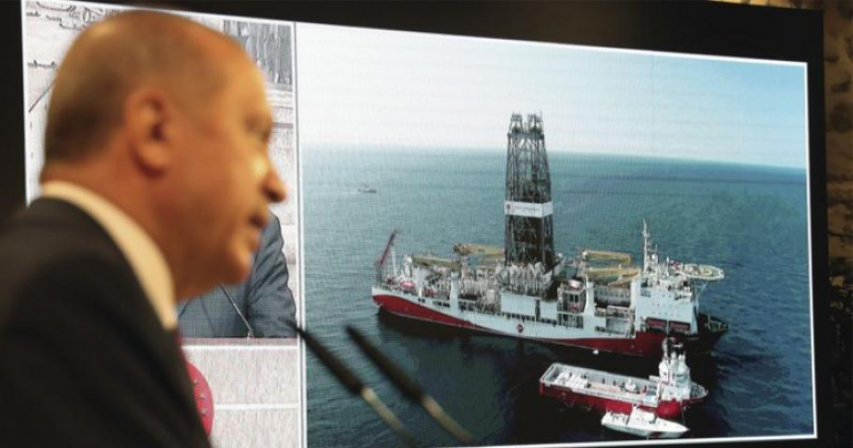Turkey finds natural gas reserve of 320 billion cubic metres off Black Sea
- 4 years ago

''Turkey has realised the biggest natural gas find of its history in the Black Sea,'' President Erdogan announces, adding that ultimately Ankara aims to become a net energy exporter.
Turkey has found significant gas resources in the Black Sea, a discovery that will help the country cut its dependence on energy imports once the gas is commercially extracted.
Turkey's President Recep Tayyip Erdogan, who had hinted at the "good news" in a meeting with energy executives on Wednesday, announced on Friday that drilling ship Fatih hit natural gas in the Black Sea with an initial estimated reserve of 320 billion cubic metres.
Turkey wants to begin using the gas reserves by 2023 and data shows a strong possibility of other natural gas finds in the Black Sea, Erdogan said from Istanbul's iconic Dolmabache Palace.
"We hope to see similar good news in the Mediterranean as well, we will accelerate our operations there ... and continue our drilling activities," he said.
Turkey's drilling ship Fatih has been operating since late July in an exploration zone known as Tuna-1, about 100 nautical miles north of the Turkish coast in the western Black Sea.
Turkey's Energy Minister Fatih Donmez said the gas discovery was made "after ninth drilling".
"Seismic data shows two more layers of similar reservoir structures below... currently, we are 3,500 metres deep and have cut second important reserve," Donmez said.
After Erdogan's announcement, Turkey's Finance Minister Berat Albayrak said he's hopeful that the county "will no longer post current account deficits after natural gas discovery in Black Sea, but will see current account surplus."
Turkey’s continental shelf is was drawn with maritime boundary delimitation agreements from 1973 to 1999 with neighbouring countries.
The Tuna-1 in an exploration zone named after the Danube, where it is located at the confluence of the Bulgarian and Romanian maritime borders and the inland waters of Turkey. Drilling for the reserves will be at approximately 3,500 to 4,000 thousand metres at some 150 to 180 kilometres from the Turkish coast.
Turkey’s first seismic vessel Barbaros Hayrettin Pasa previously carried out seismic surveys in the Black Sea and identified rich reserves of natural gas in the Danube exploration block in the Turkish sea waters of the western Black Sea.
Romania and Bulgaria have been producing oil and gas for many years in the Danube block. In 2010, Romania found natural gas in its first deep-water exploration well – the largest gas find in the Black Sea in decades.
Turkey's maritime boundary delimitation agreements were made between 1973 and 1999 with neighbouring countries.

Fatih, Turkey's first drilling ship, was launched in 2011. Built in South Korea, the vessel can drilling up to a depth of 12,000 meters and is 229 meters long and weighs 51,283 gross tonnes.
The drilling ship departed for its drilling mission in the region from northern Turkey’s Trabzon on June 26 and is approximately 150 kilometres offshore Turkey's coast at the moment.
Comments